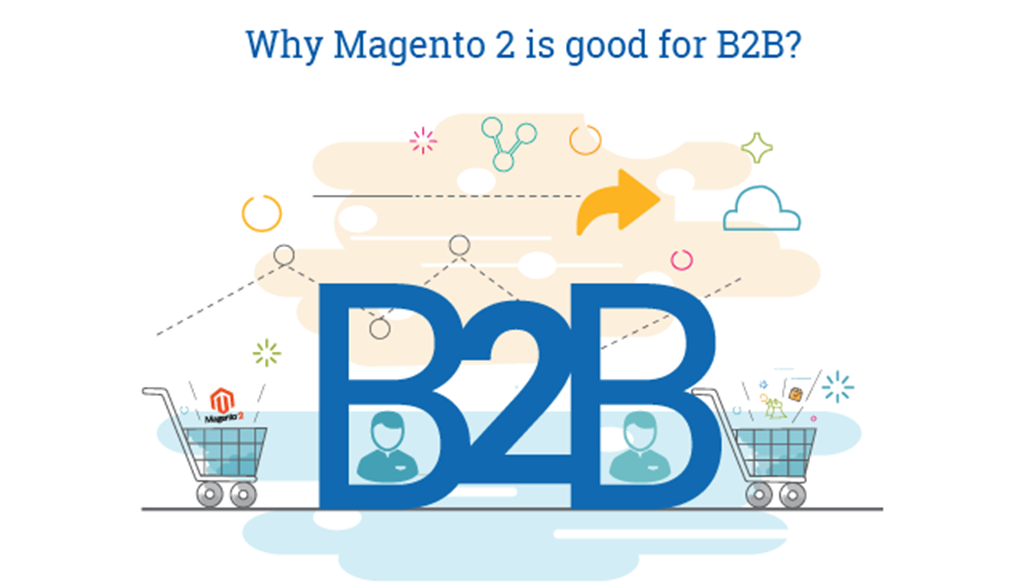Popular articles
Magento 2 is a powerful open-source eCommerce platform renowned for its flexibility, scalability, and robust feature set. But what exactly is Magento 2 used for? Simply put, it's used to build and manage online stores, but it's much more than just a basic shopping cart system. Magento 2 empowers businesses of all sizes to create sophisticated eCommerce websites tailored to their specific needs and goals.
Here's a breakdown of what Magento 2 is used for:
1. Building Diverse eCommerce Stores:
Magento 2 can be used to create a wide range of online stores, including:
- B2C (Business-to-Consumer): This is the most common use case, where businesses sell products or services directly to individual customers.
- B2B (Business-to-Business): Magento 2 provides dedicated features to facilitate online transactions between businesses, such as wholesalers, distributors, and manufacturers. This includes functionalities like company accounts, custom catalogs, and negotiated pricing.
- Hybrid B2B/B2C: For businesses catering to both individual consumers and other businesses, Magento 2 allows for a seamless blend of B2C and B2B functionalities within a single platform.

2. Creating Customized Shopping Experiences:
Magento 2 offers extensive customization options, allowing businesses to:
- Design Unique Storefronts: Craft visually appealing and user-friendly online stores that reflect their brand identity and resonate with their target audience.
- Personalize Customer Journeys: Implement personalized product recommendations, targeted promotions, and tailored content to enhance customer engagement.
- Optimize for Mobile Commerce: Create responsive websites that provide seamless shopping experiences across all devices, including smartphones and tablets.
3. Managing Complex eCommerce Operations:
Magento 2 provides comprehensive tools to manage various aspects of online businesses:
- Product Management: Efficiently manage large product catalogs, including product variations, inventory levels, and pricing.
- Order Management: Streamline order processing, fulfillment, and shipping operations for timely delivery and customer satisfaction.
- Customer Management: Build and nurture customer relationships through features like customer segmentation, loyalty programs, and personalized communication.
- Marketing and Promotions: Drive sales and engagement with built-in marketing tools, including email marketing, coupon management, and SEO optimization.
4. Extending Functionality with Extensions:
Magento 2's vast extension marketplace offers a wide array of add-ons to enhance the platform's capabilities. This includes extensions for:
- Enhanced B2B Features: Implement advanced B2B functionalities with Magento b2b extension like those offered by BSS Commerce. These extensions can streamline quote management, customer registration, and order processing for B2B businesses.
- Payment Gateways: Integrate with various payment providers to offer customers secure and convenient checkout options.
- Shipping and Logistics: Connect with shipping carriers and fulfillment services to automate shipping processes and optimize delivery costs.
5. Scaling for Growth:
Magento 2 is designed to handle high traffic volumes and complex operations, making it an ideal choice for businesses with ambitious growth plans. As your business expands, Magento 2 can scale to accommodate increased traffic, transactions, and product offerings.
In conclusion, Magento 2 is a versatile and powerful platform used to create and manage a wide range of online stores. Whether you're a small business just starting or a large enterprise with complex needs, Magento 2 provides the tools and flexibility to succeed in the competitive eCommerce landscape.

Interested in learning more about how Magento supports B2B businesses? We have a detailed article exploring that topic: [Is Magento good for B2B?]
Subscribe to unlock premium content
Sed at tellus, pharetra lacus, aenean risus non nisl ultricies commodo diam aliquet arcu enim eu leo porttitor habitasse adipiscing porttitor varius ultricies facilisis viverra lacus neque.



